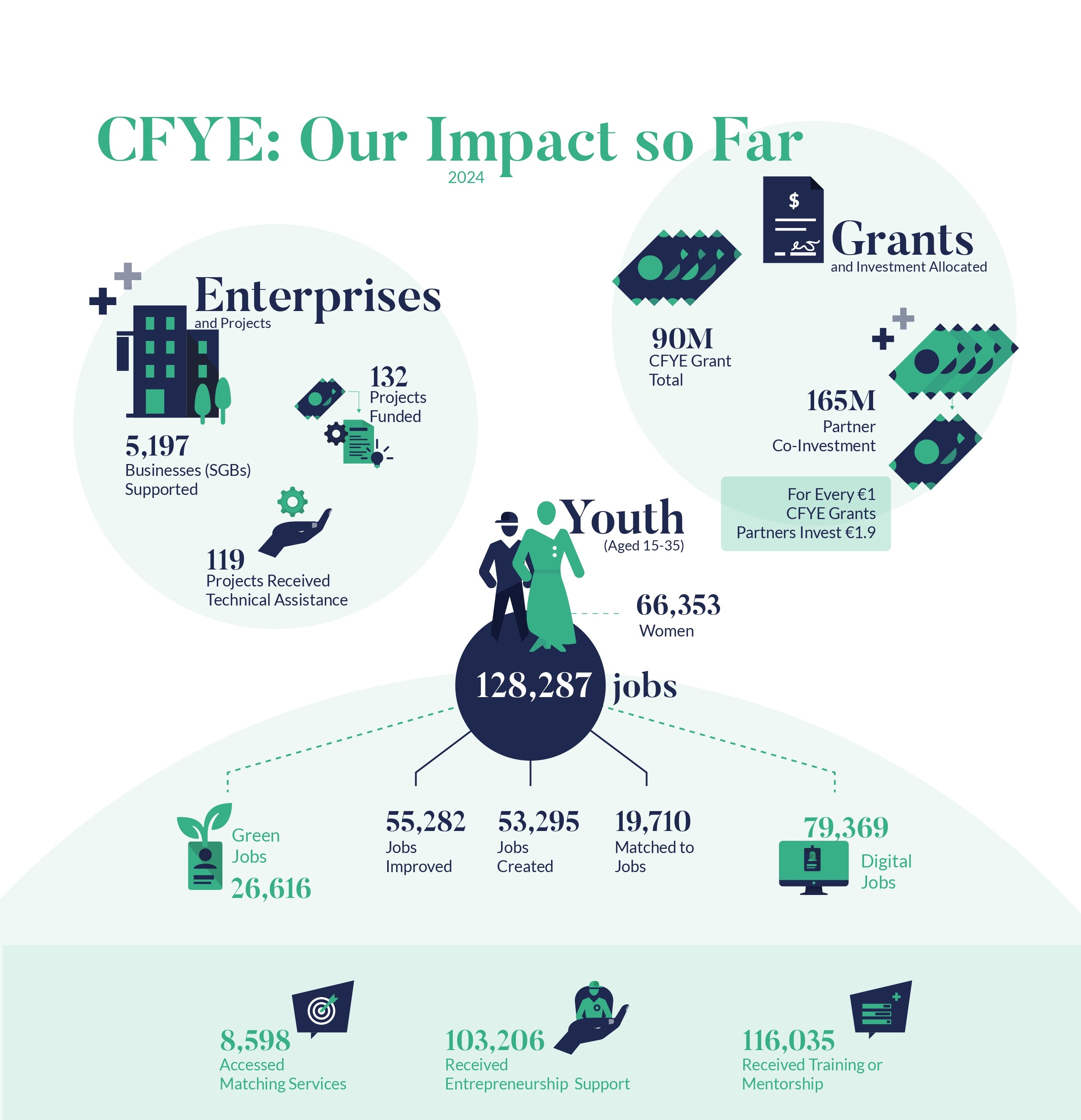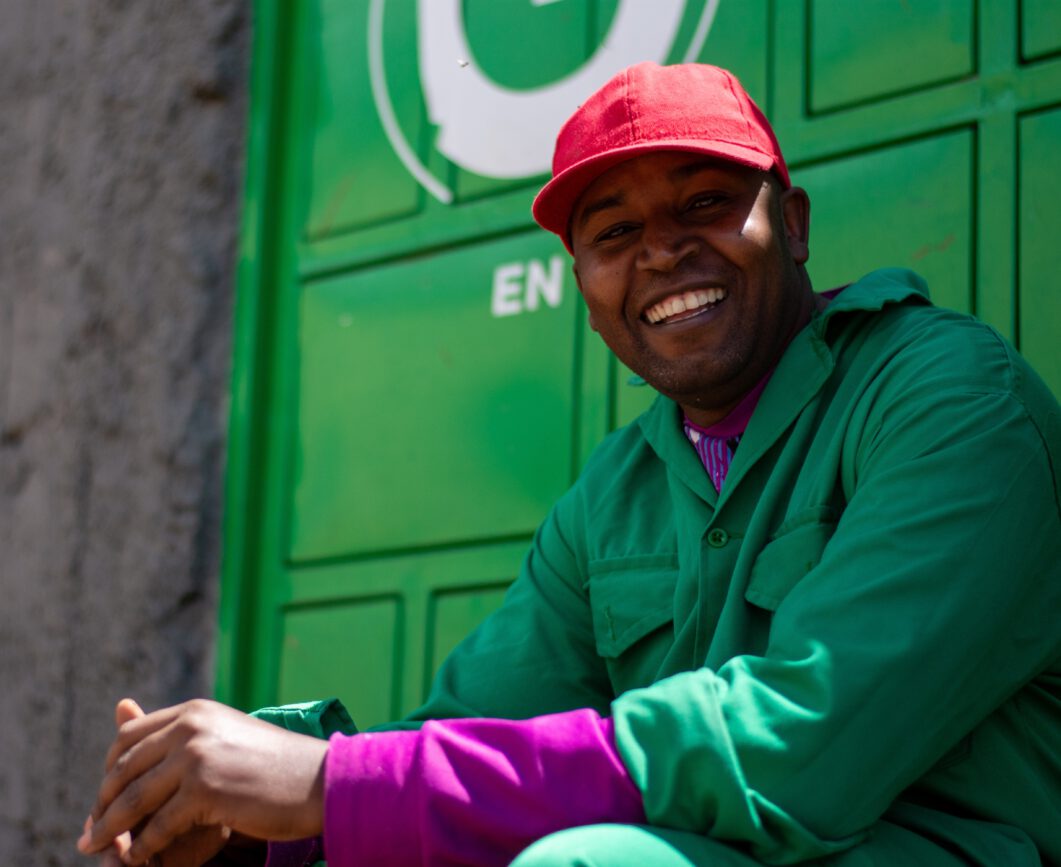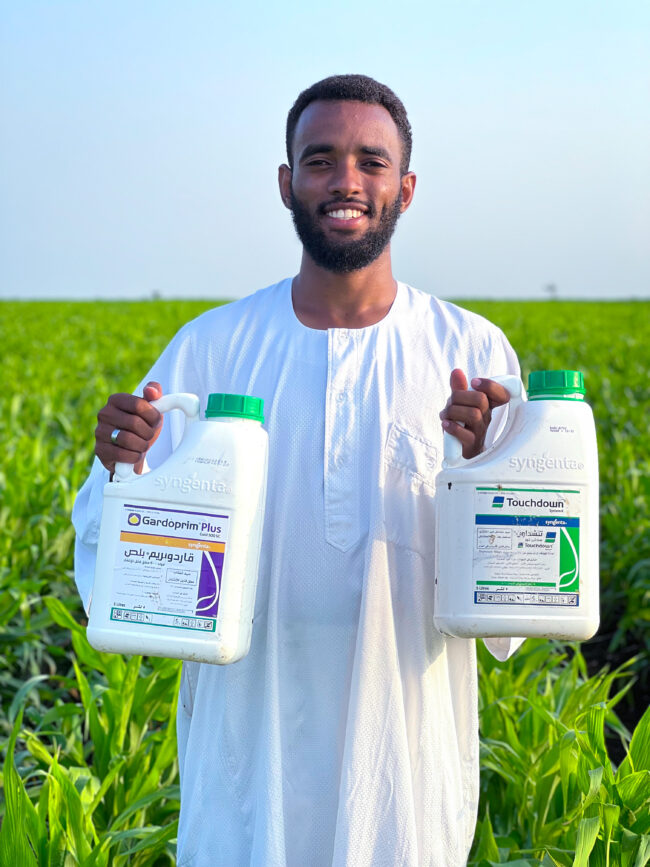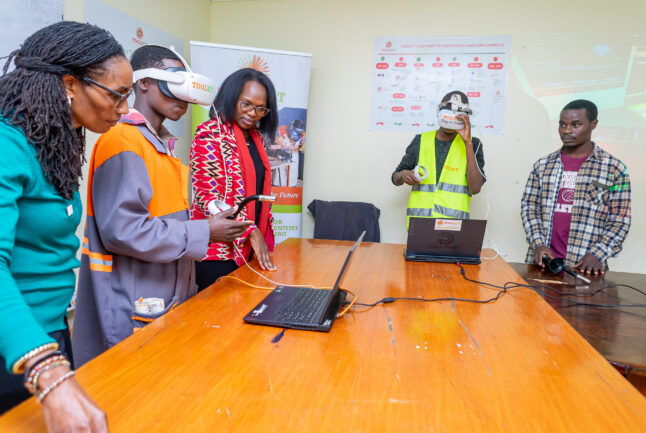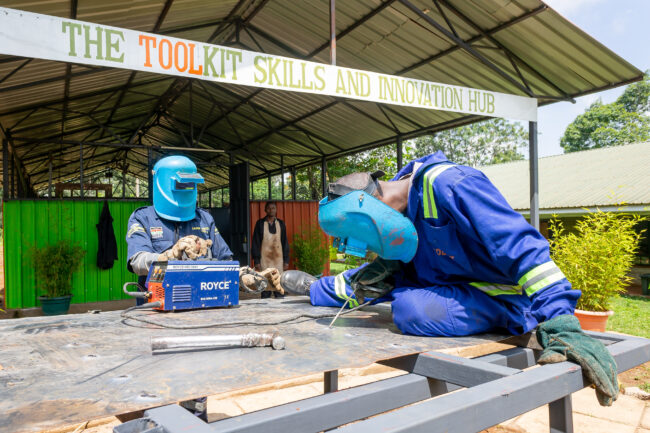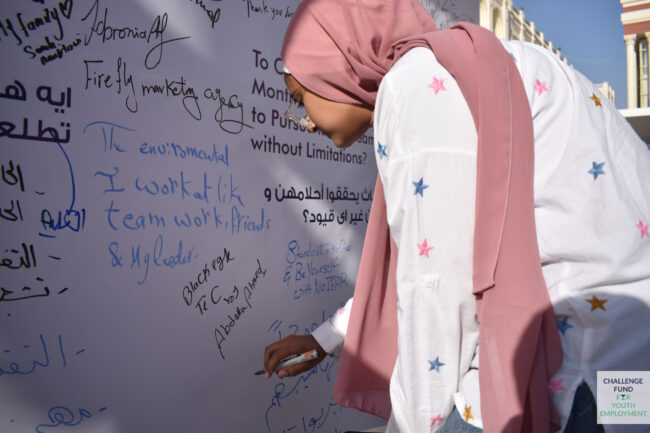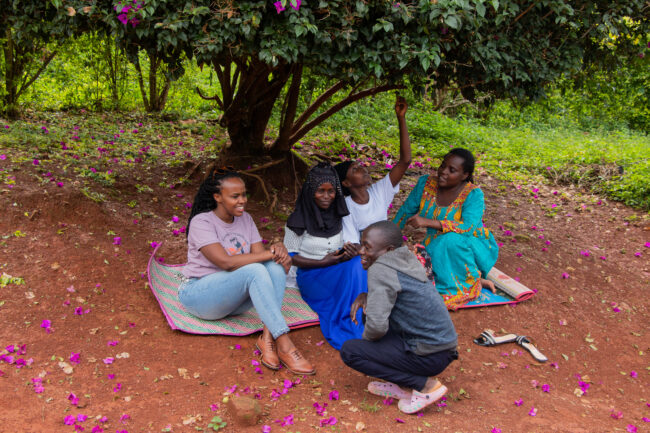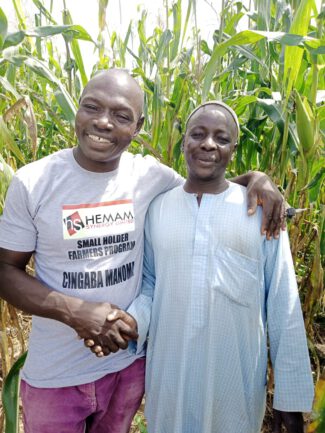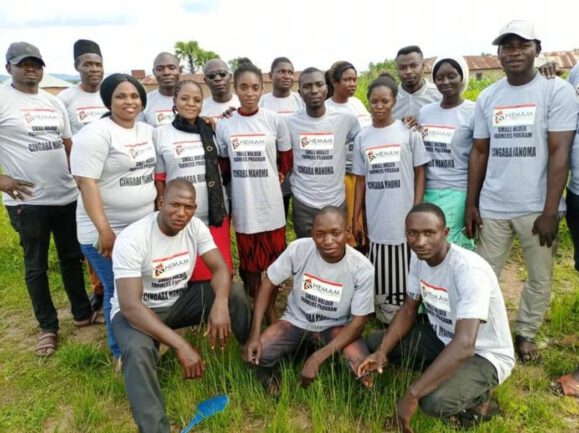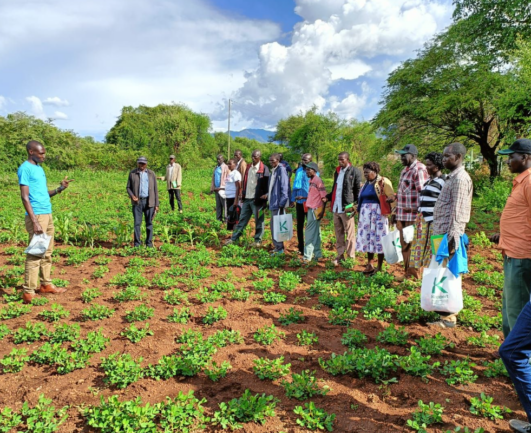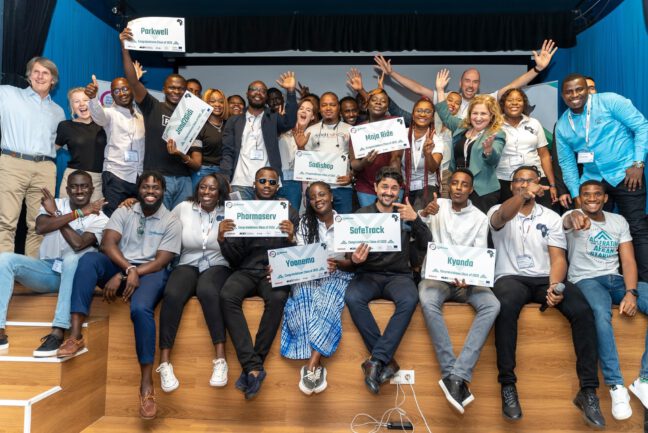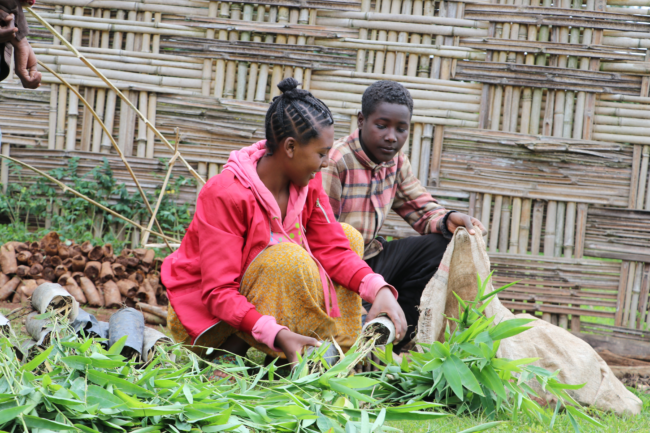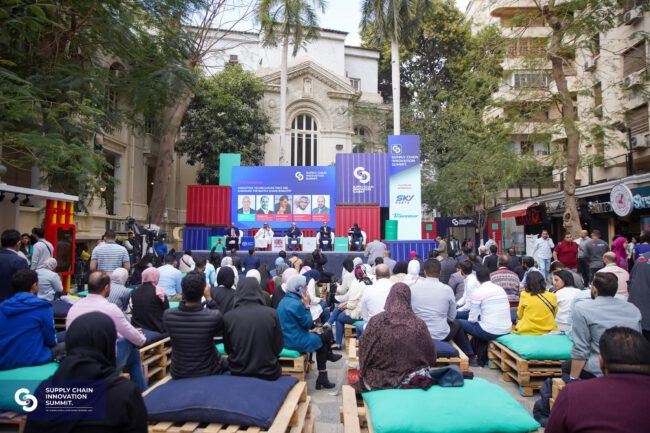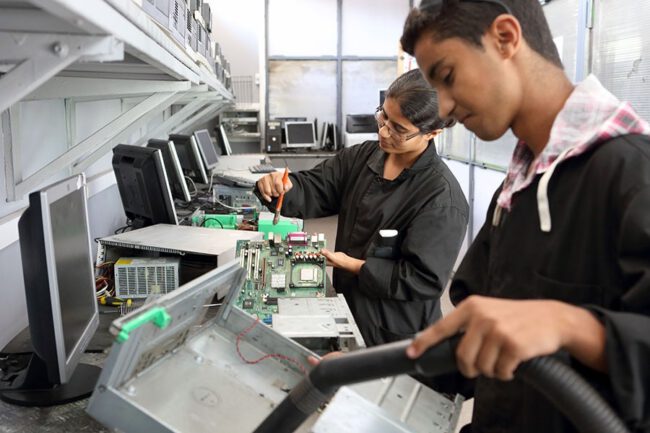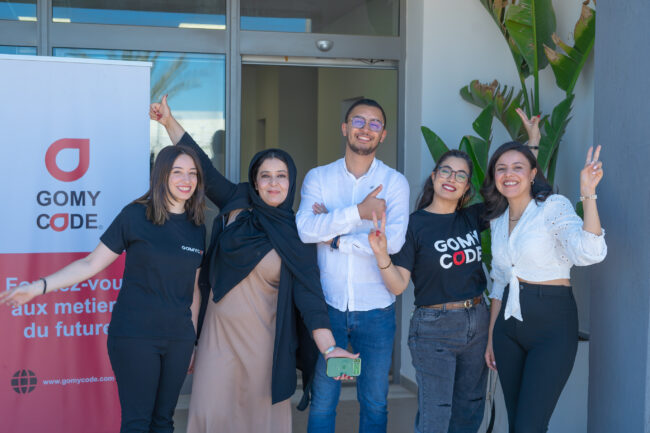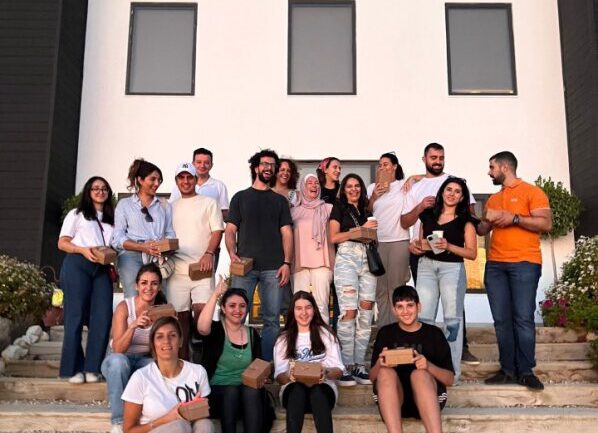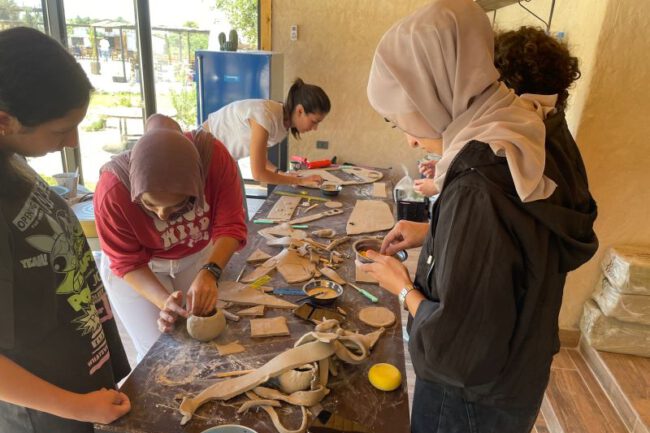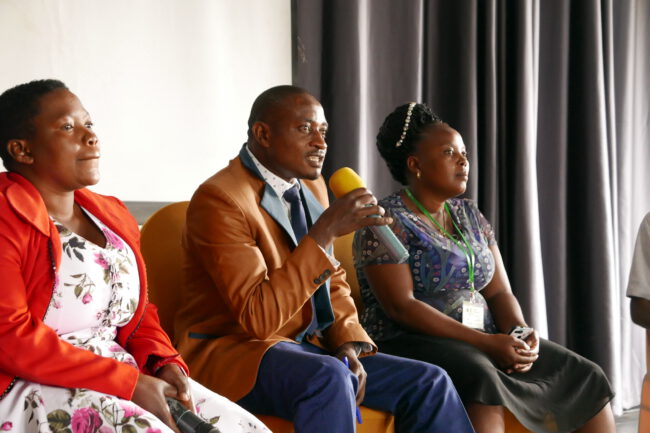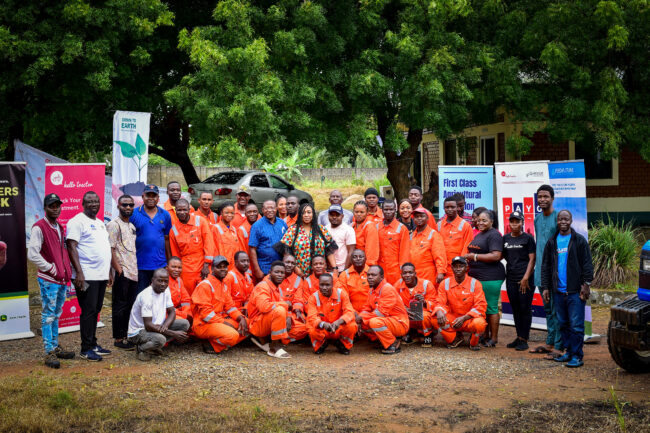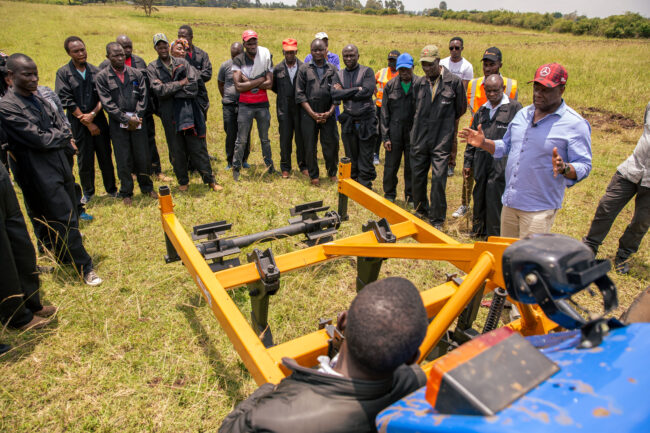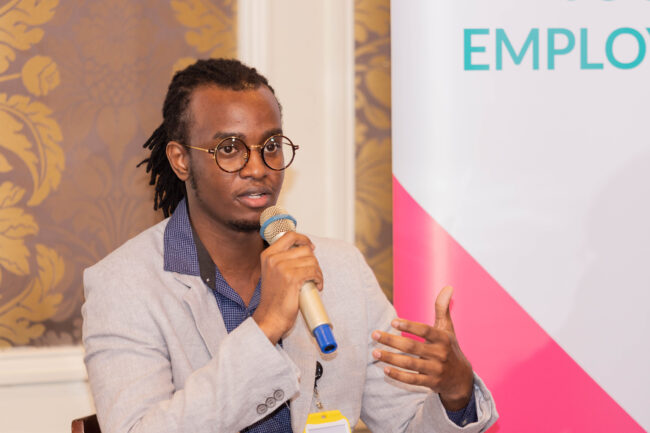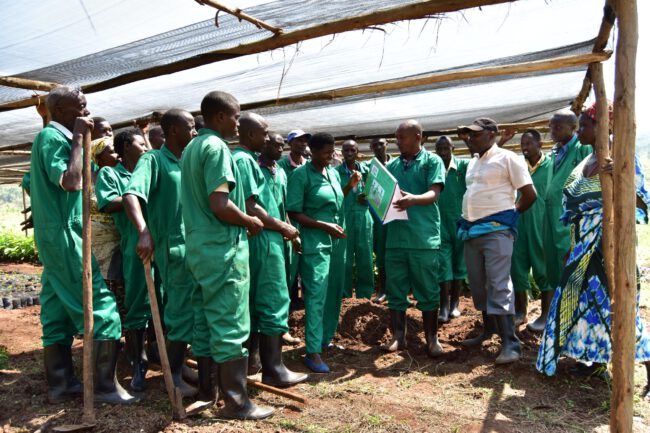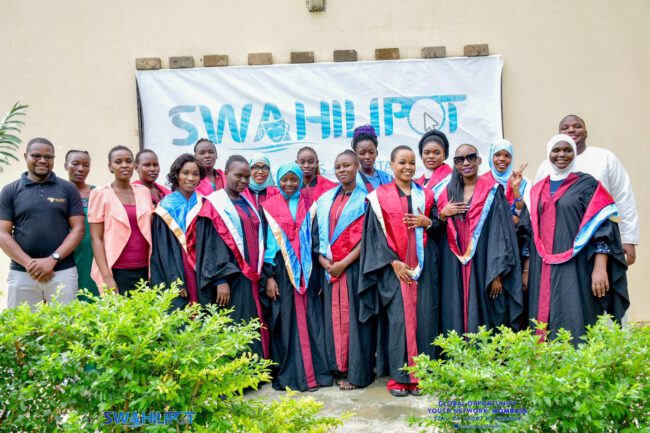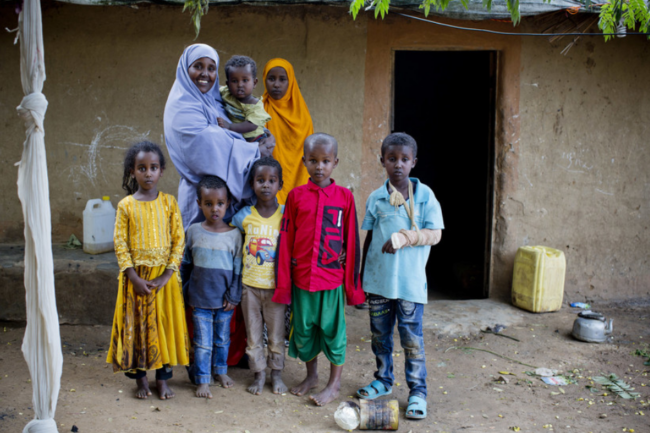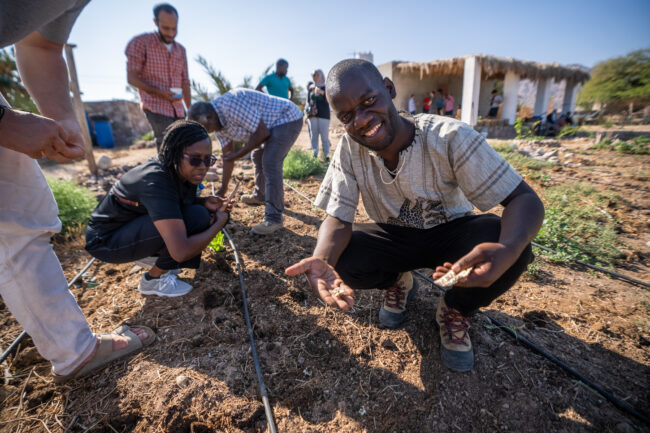What Impact did CFYE Achieve in 2024?
In 2024, CFYE focused on implementing existing projects while launching, finalising the contracts, and onboarding 27 new Implementing Partners (IPs) from the last Call for Solutions (Call 6). From the selection, 23% of Call 6 projects are in the agricultural sector, 19% in business & service industries, and 15% in Information & Technology (IT) and digital services. With approximately 13 million euros committed in grant money for Call 6 projects, these businesses are projected to support the creation, matching, or improvement of approximately 58k jobs out of which 60% are aimed at young women.
To date, CFYE supported 132 unique projects, of which 942 are currently active and 38 are completed. These projects operate across 11 countries (Burkina Faso, Egypt, Ethiopia, Jordan, Kenya, Morocco, Nigeria, Senegal, Sudan, Tunisia, and Uganda) to deliver projects that enable young people to access new or better jobs. The job targets amount to 290,781 jobs for young people by the end of the programme in 2026, of which 173,916 jobs will be for women. So far, these projects have generated a total of 128,287 jobs for youth, 66,353 of which are for young women (52%).
2024 Achievements
Create
A majority of the planned jobs in the CFYE portfolio fall under the ‘create’ category (44%), which includes the number of young people who secure employment through newly created decent work and income opportunities.
In 2024, CFYE Implementing Partners following a create pathway were able to create 53,295 jobs for youth (28,248 for women, 53%), of which more than half were waged jobs. Together with waged jobs, entrepreneurship and self-employed jobs are essential elements of CFYE’s comprehensive ‘create’ pathway. Among the 132 projects supported throughout the years, 121 have had a create pathway, and 61 projects (46% of all projects supported) are providing support for self-employment, such as training and mentorship for strengthening entrepreneurial skills, access to e-commerce platforms, and market linkages support
Match
Of the total jobs planned in the CFYE portfolio, 14% are matched jobs. In 2024, CFYE continued its efforts to match young people with paid employment opportunities. Whether through job placements, matchmaking services, or youth’s own initiative following CFYE skill development interventions, this pathway contributed to a total of 19,710 young people being successfully matched to jobs, with 11,531 of these jobs being filled by women (59%).
The impact stories below center on our IPs in Tunisia and Kenya, illustrating the vital role career advisors and placement officers play in bridging the skills gap and fostering youth employment. By strengthening the link between education and the private sector, they play a pivotal role shaping the job market and matching skilled youth to sustainable employment opportunities.
Improve
Job improvement occurs when young people experience an uplift in the quality of their current employment and indicates a meaningful change for the better in one or more aspects of employment quality (e.g. higher earnings, better levels of job security, or enhanced working conditions).
In 2024, the Fund was able to improve 55,282 jobs, of which 26,574 were for women (48%) reflecting CFYE’s efforts in generating sustainable and decent employment opportunities in vulnerable sectors. Job improvement and formalisation are not solely achieved through direct or employer-led interventions. They also occur by enabling small and medium businesses to grow organically and encouraging them to adopt policies, rules, and measures that promote job decency. CFYE’s partnership with intermediaries – organisations that provide advisory and financing support to small and growing businesses (SGBs) – has been at the forefront of these efforts. Their ability to reach businesses who would be too small to benefit directly from CFYE’s support allows the Fund to reach the real engines behind employment and foster job quality.
Impact Stories
Creating Space to Sign: Diana & Kalanzi’s Path to Inclusive Work in the Green Economy
 Faatimah Clarke
Faatimah Clarke
Two Years Later: James’s Mission for Cleaner Streets and Stronger Communities
 Sade Aalto-Setala
Sade Aalto-Setala
Agrowise and the Power of Local Innovation in Sudan: When Resilience meets Reinvention
 Faatimah Clarke
Faatimah Clarke
Valuable lessons
Together with our partners, we have gathered valuable lessons about how to deepen our impact, how to grow and evolve Fund operations efficiently and effectively, how to define decent work and measure employment quality, how to engage young people in our decision-making, and how to strengthen the evidence base for future programs.
How to define and measure decent jobs
We can’t focus on job creation without job quality. To determine which jobs would be “good enough to count”, we first developed minimum standards and a scoring rubric. However, when we tried to operationalise these tools, we faced challenges, especially in measuring and applying a living wage benchmark. The living wage is a gold standard that all employers should aim for, but its value varies considerably in different contexts and can be difficult to calculate and monitor. Furthermore, in many of the contexts where we work, most workers do not earn a living wage, making it unrealistic as a universal minimum standard for CFYE. This especially holds for self-employed, part-time, or gig workers.

The world of work is also changing, and employment standards are still catching up. Some countries have recently updated minimum wage regulations, while others haven’t been updated in decades. In addition to wages, other aspects, such as work-life balance, job security, and opportunities for development, are also crucial for youth. Given the variation in labour standards by country and the diversity of jobs in our portfolio, we realised that our decent work threshold needed to be revisited. Therefore we evolved our strategy, splitting the concept between decent work standards (defined by ILO’s four core labour standards and applicable to all CFYE-supported projects and jobs) and the CFYE’s job quality improvement framework – for projects aiming to improve broader aspects of job quality (wages, working conditions, job security). This new approach enables us to uphold universal minimum standards for decent work while also accommodating contextually-relevant definitions, interventions, and measurement approaches focused on enhancing job quality. These efforts are informed by local labour laws, sector-specific standards, and/or the valuable perspectives of youth regarding what truly matters.
How to amplify youth voices
CFYE strives to create employment opportunities for underserved youth, particularly young women, who often face underemployment and poor working conditions. Through scoping research, we identify these underserved youth and design projects to reach them.
We have taken a frontrunner role in embedding Meaningful Youth Participation (MYP) in its private sector-driven work. To support our partners in understanding and contributing to youth’s actual needs and aspirations, we piloted a youth-led approach via “youth champions”: one-year national volunteers whose mandate is to bring a youth perspective across CFYE and partners using youth-friendly methods. These youth champs conducted youth-action research and helped shape some of the CFYE’s key activities. Based on the success and learnings of the 2021 Youth Champs pilot, the CFYE Youth Champs initiative was scaled-up and formalised in 2022.
In addition, 16 Youth Champions and 4 Youth Experts from Kenya, Uganda, Nigeria, and Ethiopia were engaged as in-house experts in 2022. The network creates a win-win situation for both CFYE and Youth Champs, benefiting from the youth perspective while supporting the personal and professional development of the Youth Champs.
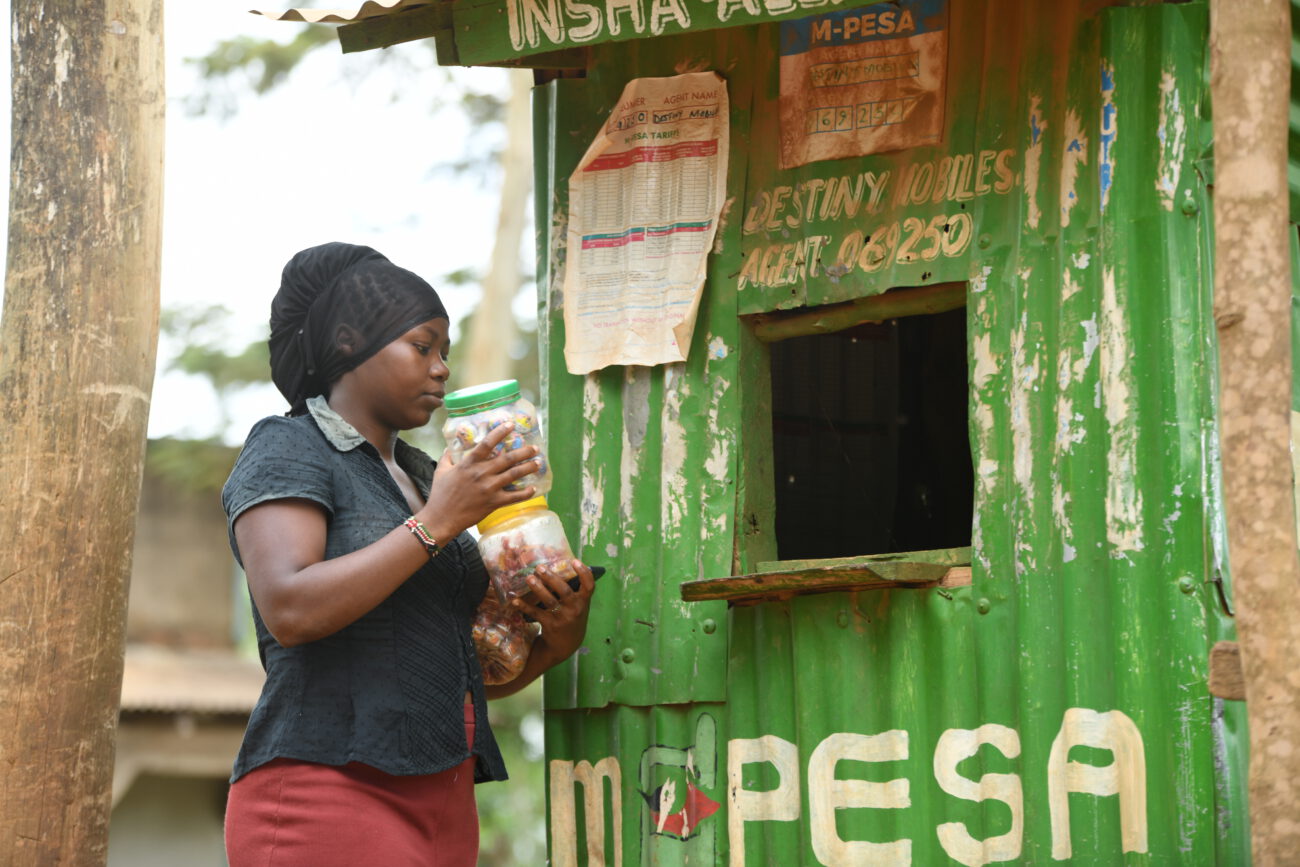
Tool for youth champions
In addition to engaging designated youth champions, we also designed and tested a self-assessment tool for our partners to discover how to better integrate a youth and gender lens in their businesses. It is framed around three components: attracting, selecting, and retaining youth talent, and includes specific building blocks, including marketing and community-based outreach, youth-inclusive recruitment, young professional development opportunities, peer networks, gender-inclusive practices, and youth-led benefits. Based on scoring in the matrix, partners may adapt their projects to improve their youth and female focus.
How to scale up our work in an effective, impactful, and efficient way
Our Delivery at Scale initiative focused on three priority areas: strategic alignment, operational efficiency and practical integration. Through a thorough diagnostic and consultative process, the CFYE’s organisational structure was revamped, and a dedicated Fund Management team was established. Country Leads were empowered as drivers of CFYE’s in-country strategy and service delivery with active support from other teams. We updated and rolled out critical processes and frameworks for portfolio management, including Quarterly Reporting & Reviews, Annual Reporting & Reviews, Internal Quarterly Portfolio Reviews, and Payments-by-Results-Framework.
How to better run our challenge fund mechanism to achieve our goal
Support intermediaries to finance and scale small and growing businesses (SGBs)
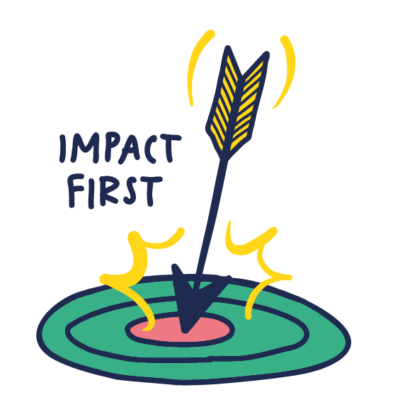 We recognise that small and growing businesses (SGBs) are the engine of job creation in our focus countries. However, it would be inefficient for CFYE to fund most SGBs directly due to our co-funding requirement and limited capacity to manage and monitor smaller grants. Therefore, we collaborate with intermediaries that support other enterprises and entrepreneurs with business support, entrepreneurship development, finance, training, and/or job-matching support.
We recognise that small and growing businesses (SGBs) are the engine of job creation in our focus countries. However, it would be inefficient for CFYE to fund most SGBs directly due to our co-funding requirement and limited capacity to manage and monitor smaller grants. Therefore, we collaborate with intermediaries that support other enterprises and entrepreneurs with business support, entrepreneurship development, finance, training, and/or job-matching support.
How to grow and learn
Our revised Learning Agenda helps us create, share and use learning, knowledge and innovation to achieve our strategic goals. The Agenda highlights five priority learning themes:
1) Defining and measuring the quality of jobs for youth
2) The investment case for quality employment
3) The future of work for youth (with a strong emphasis on digital and green jobs)
4) Enhancing the youth employment ecosystem
5) CFYE’s strategy and model.
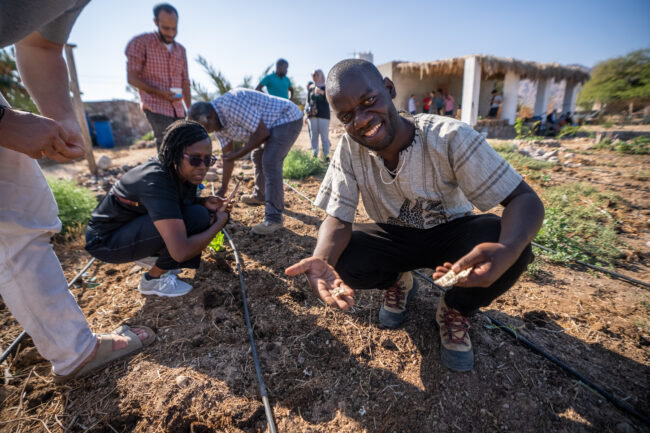
The Future of Work for Youth
Green jobs
Together with INCLUDE, we started a collaboration aimed at gaining insights into green jobs and their key features, as well as identifying green job opportunities for youth and employers. A framework was developed to measure green jobs and formulate green job pathways. For more information, see our portfolio page on green jobs.
Digital jobs
We paired knowledge with JobTechAlliance (MercyCorps) and ILO Systemic Initiative on a learning lab to generate insights around key features, quality and inclusivity of digitally enabled jobs. For more information, see our portfolio page on digital jobs.
How to strengthen the evidence base for youth employment
In our first year, together with the Ministry of Foreign Affairs and our partners, we identified key learning objectives based on evidence gaps in our theory of change. These objectives include defining and measuring the quality of jobs (or decent work), the business case for decent work for youth, the future of work, and strengthening the youth employment ecosystem.
Three stage approach
We follow a three-staged approach in our learning: first, we gain more insights through engaging with our partners and (if needed) conducting additional research; second, we apply these insights to improve performance; and third, we build sufficient evidence to inform the wider sector.
Events
About the CFYE
Funded by the Ministry of Foreign Affairs of the Netherlands, the Challenge Fund for Youth Employment (CFYE) aims to create a prosperous future for 230,000 young women and men in the Middle East, North Africa, Sahel & West Africa, and the Horn of Africa. We do this by providing funding and technical assistance to initiatives that offer youth, particularly young women, opportunities for decent work – work that delivers better prospects for personal development, is productive, and provides a stable income, social protection, and safe conditions. The CFYE is managed by a consortium including Palladium, Voluntary Service Overseas (VSO), and Randstad.
Our Strategy
We strongly believe that by supporting businesses and intermediaries with capital, capacity, and targeted strategies, we can enable them to create more and better income-generating opportunities for youth. Our ultimate goal is to realise decent employment either by creating new job opportunities, matching youth with existing ones, or improving working terms and conditions.
